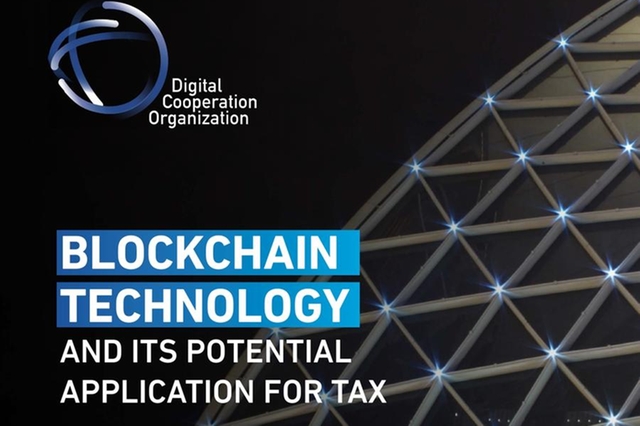The Digital Cooperation Organization (DCO), the global organization dedicated to enabling digital prosperity for all, has released a new whitepaper that provides an overview of blockchain technology and outlines its potential use cases for the taxation field.
Aligned with its commitment to support member states with knowledge and insight into digital economy issues, the DCO provides a comprehensive overview of what blockchain technology in the whitepaper. This includes a step-by-step process on the workings of a blockchain, the types of blockchain networks, and the key attributes of each.
Recognising the importance of understanding the perspectives of the different stakeholders involved, the DCO whitepaper also sheds light on the different incentives applicable to both taxpayers and tax administrations. The whitepaper identifies aspects such as increasing visibility and transparency, resolving data asymmetry, and more as key incentives for taxpayers when it comes to the adoption of blockchain in the field of tax. At the other end, it also identifies the key incentives for tax administrators such as digitalization and mitigating tax fraud.
The whitepaper also highlights how blockchain was used by governments and organisations around the world to address specific tax issues, while discussing future use cases that can be explored in areas such as transfer pricing, intercompany transaction data, and VAT.
Commenting on the whitepaper, Manel Bondi, Digital Taxation Director at DCO, said: “The whitepaper is part of our commitment towards supporting our member states and the wider community when it comes to navigating the digital economy and tackling the existing and emerging challenges within. We believe that advanced technologies such as blockchain have the potential to present solutions for global tax challenges, and we want this whitepaper to inspire further consideration and dialogue in the field.”
The DCO is a global non-profit organization focused on digital economy initiatives that create knowledge sharing and collaboration between member states to accelerate digital transformation for the benefit of all. The DCO has also launched several initiatives that support youth, start-up entrepreneurs, and women to help underrepresented groups access the positive benefits of the digital economy. Currently, the DCO represents eleven member states with a combined GDP of over US$2 trillion and a population of nearly 600 million. With 70 percent of future economic growth set to be digital, DCO member states provide a valuable market opportunity to investors and entrepreneurs alike.
For more information on the whitepaper, or to download it, please visit www.dcoinsights.com/whitepaper

